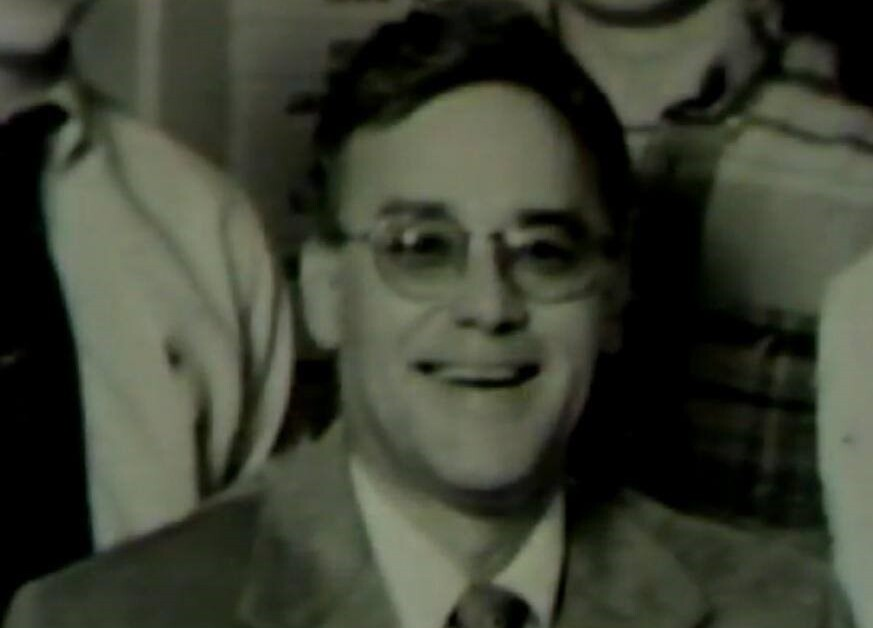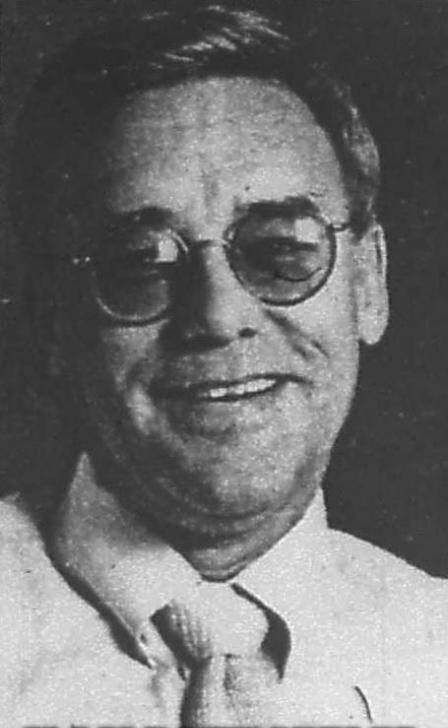Rex Copeland was the star of his team, but he was growing weary of the grueling practices, the constant traveling and, most of all, an overly-demanding and never satisfied coach. The twenty-year-old student attended college in football-frenzied Alabama, but he was not an athlete. Rex was instead the star of his Samford University debate team. Debate is nowhere near the level of football in Alabama, but it was a big deal at the private college of approximately 5,000 students in Homewood, five miles south of Birmingham. The small Baptist school had a long tradition of great debaters and had nearly won the national debate championship for the 1988-1989 school year. The 1989-90 team, led by Rex, was poised for another run at the title.
Rex no doubt debated with himself whether to continue as a member of the team. He enjoyed arguing issues such as whether capital punishment is a deterrent to crime, the constitutionality of affirmative action, or the effectiveness of the trade embargo with Cuba. Now, however, his priorities had changed. He had just begun his junior year of college and longed for more down time to spend with his girlfriend, attend a few social events, and to enjoy the remainder of his collegiate career.
By early September, Rex may have decided to give up his craft. He wanted to be a lawyer and debating had prepared him well for that career. Now, however, he was stretched too thin, and he wanted to focus on finishing college, preparing for law school, and having a little fun in between.
For his wanting a little bit more of a life, Rex Copeland’s life was brutally taken.

Rex Copeland
On the morning of September 22, 1989, Rex’s girlfriend, Susan Dean, and his debate teammate Scott Barber went to his off-campus apartment to check on him. Neither had heard from him since the previous day and were concerned as he had been a no-show in his classes and debate practice. In addition, Rex had told Susan he would meet her at a party on the evening of the twenty-first, but he had not done so.
Upon arriving at the Hunter Pointe apartment complex, Scott and Susan found his car in the parking lot. They knocked on his locked door but received no answer. Security guard and Jefferson County Sheriff’s Deputy James Bentley opened the door but then immediately closed it and told the students not to enter the apartment.
On the floor in front of the door lay Rex in a pool of blood. An autopsy found he had been stabbed twenty-two times and estimated the time of death at between 1:30-3:00 a.m. on September 21.
The murder weapon was one of Rex’s kitchen knives.

Stabbed to Death
Police found the perpetrator had wiped his fingerprints. Robbery was ruled out as Rex’s wallet was found in the apartment intact. Investigators determined the murder was not a random crime because no signs of forced entry into the apartment were found. Two glasses of soda sat on the table, indicating Rex had voluntarily let someone into his apartment, likely someone he knew.
Police also found a bloody hand print with five stretched fingermarks on the apartment door. They were Rex’s, indicating he had made a desperate attempt for the door before he died. Detective Mike Campbell said the image was one of the most haunting of his career as a homicide detective.
Blood stains were also found on the carpet, and on the bathroom countertop, walls, and ceiling fans.
DNA was found on the glasses and elsewhere, but it is not what led to Rex Copeland’s killer. At the time, the DNA analyzing process was slow and labs were overloaded with cases.
Police believed Rex had inflicted cuts on his killer’s arms. Their hunch proved correct as his valiant fight for his life led to the person who brutally took it.

Rex Leaves the Clues to His Killer
The local University Hospital informed police that on the evening of September 21, a man came to the emergency room for treatment of deep lacerations on his forearm. The patient told doctors he had sustained the injuries from grabbing a towel rack after slipping in the shower.
The injured man’s name was Bill Slagle, a professor at Samford College . . . and also the debate coach. The Amarillo, Texas, native had taught and coached debate at Texas Tech University and another Baptist Institution, Mercer College in Macon, Georgia, prior to coming to Samford. The forty-two-year-old was unmarried, had few close friends, and rarely socialized. Teaching and coaching debate were Slagle’s life and he took both, but especially debate, most seriously.
Slagle, regarded as one of the best debate coaches in America, was a drill sergeant in a suit and tie. He was always quick to ridicule and rarely prone to praise those he coached. From descriptions, he could be aptly described as the “Bob Knight of debate coaches.”
Whereas an athletics coach might make a player do extra push-ups or run more laps if he were not meeting his standards, Slagle would make a debate member read scores of extra articles and write extra briefs into the wee hours of the night if he was not satisfied with his or her performance. Slagle produced winners, but many debaters quit the team because of their disdain for him.
Slagle had a saying: “School first, debate second.” Rex Copeland accepted the mantra for two years and probably would have done so longer if there were more to the rule. For Slagle, however, that was the rule in its entirety; there was no third, fourth, or fifth facets.

Bill Slagle
Slagle attended Rex’s funeral; those around him said he appeared more nervous than sad. He offered his condolences to Rex’s father by shaking his hand and hugging him. William Copeland recalled Slagle wincing, saying he had hurt his arm from a fall in the shower.
When authorities learned of Slagle’s injuries, they were in agreement: the debate coach needed to be questioned. Shortly after the funeral, however, he withdrew $10,000 from his bank account, rented a car, and skipped town.

Slagle Skidaddles
One week later, the Homewood police received a letter from Nashville, Tennessee, two-hundred miles away. It was from the coach turned fugitive.
Slagle admitted to the killing but claimed it was self-defense, saying an argument ensued between the two men in which Rex had pulled a knife, which, Slagle claimed, he wrestled away to defend himself. In the process, the coach said, he killed his top debater.
The following week, Slagle mailed a letter from Los Angeles International Airport saying he was going to commit suicide.

Part of Slagle’s Letter
No one believed Slagle was planning to end his life, but what he did next was nearly as unexpected.
On April 3, 1990, after six months on the run, Slagle walked into the Shelby County (Alabama) Sheriff’s Department, went to the front desk and calmly said, “My name is William Slagle. I believe you are looking for me.”
Under interrogation, Slagle reiterated his claims of self-defense.

Slagle Surrenders
Bill Slagle may have been one of the country’s top debate coaches, but he could not persuade the jury. His self-defense claims fell flat as he had cleaned up the crime scene, placed bloody towels in a plastic bag, and even locked the door to Rex’s apartment upon leaving.
In December, 1990, Slagle was convicted of first degree murder and sentenced to life in prison.

Coach Convicted
Slagle’s motive for murdering Rex probably stemmed from Rex’s desire to leave the debate team.
At debate practice on the afternoon of September 20, Slagle had been especially hard on Rex and berated him in front of the team for what Slagle considered a poor performance in preparation for an upcoming tournament in Cedar Falls, Iowa. The coach and student had a heated verbal argument that ended with Rex storming out of the room. Teammate Scott Barber went after Rex to try to get him to return, but Rex would have none of it. He told Scott he had had it with Slagle and was quitting debate.
The student and coach had butted heads many times before and Rex had made similar statements, but he always returned to debate. Scott believed Rex was blowing smoke again and would return when he calmed down. This time, however, Rex may have meant what he said.

Slagle and Rex
Police believe Rex told Slagle later that day he was quitting debate and that Slagle went to Rex’s apartment to ask him to reconsider. Slagle longed for the national championship and he knew, even though he had demeaned his performance, that Rex was his best debater and that Samford could not win the title without him.
The University of Southern California (USC) was also a preeminent debating school and had asked Rex if he would consider transferring and debating on their team. Prosecutors believe Rex refused Slagle’s request to return to the Samford debate team. His mentioning of considering a transfer to USC may have been what pushed Slagle over the edge.

Closed to Debate
Sitting behind bars, the great debate coach had plenty of time to prepare his case for the parole board, but he proved unconvincing. Slagle was denied parole in 2001 and 2007. He died in 2010.
To the end, Bill Slagle was a coward who heinously and selfishly took a promising life. To that, there is no debate.

No Debate;
Slagle is Scum
The Rex Copeland Memorial Award is given each year to the team that wins the National Debate Competition.

Remembering and Honoring Rex
https://www.findagrave.com/memorial/114545238/rex-bartley-copeland/photo#
SOURCES:
- America’s Most Wanted
- Associated Press
- The Birmingham News
- Gadsen (Alabama) Times
- Orlando Sentinel
- Seattle Times
- Tuscaloosa News



Your write-ups are the best, Ian! I’m so glad you have this site now!
Thank you, Jackie!
Well written Ian, as usual.
Thank you, Pattie.